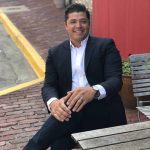Let me tell you a tale of two immigrants from Vietnam. The names have changed, but the facts haven’t.
Larry came to the U.S. at a young age. His parents – who could only get blue-collar jobs because of their limited English – instilled in Larry the value of an education from an early age. They told him that he should become a doctor or lawyer to make a good income. So, that’s what Larry did. He got good grades and was accepted into a good university to pursue what his parents considered a prestigious career.
Before Larry started his first year of undergrad, an interesting thing happened. He found out for the first time that he had a cousin of the same age who grew up in Vietnam, and he also found out that this cousin was coming to America – along with his mother and older sister – thanks to the help of Larry’s parents. Larry’s parents helped Kevin and his family find a small apartment and jobs at a local Chinese restaurant where they struggled for years to make ends meet.
Kevin was 18 when he came to the U.S. and did not know English. He would eventually gain command of the language through night ESL classes and his interactions at work at the Chinese restaurant. At first, it was a struggle, but Kevin would eventually gain his footing. Still, without Larry’s benefit of growing up in the U.S. and going to school here, Kevin was clearly behind the eight ball in terms of his financial trajectory – or so he thought.
Having not grown up in the U.S. was a blessing in disguise for Kevin because the struggle he experienced growing up in Vietnam motivated him to seek something better living in the United States. He knew he had the opportunity to make something of himself. He didn’t know how to do it, but Kevin was determined to work for himself.
Kevin learned early on that the bosses of the world made money and took time off to go fishing while the workers toiled. With that dream of becoming his own boss one day, he saved as much of what he made at the restaurant. He continued to share a small apartment with his mother and sister and was frugal and wise with his money.
Kevin’s opportunity finally came after five years of toiling at the restaurant. The restaurant owner where Kevin worked was retiring, and with no children to pass the business on to, he decided to put the restaurant up for sale. This was Kevin’s golden opportunity. Because of the solid financial track record of the restaurant, Kevin was able to secure a business loan to buy the restaurant relatively easily – using his five years of savings as a down payment.
Kevin wasn’t satisfied with just owning the restaurant. He was finally the boss, but being the boss was hard work. His dream was to buy a modest boat and take off fishing whenever he wanted. He knew that he could only attain that dream one day if he had passive income – money making him money.
While fishing, a friend told him about a small 20-space R.V. park going up for sale in the city. Kevin had heard about many millionaires gaining their fortunes from real estate, but even Kevin had a stereotype fixated in his mind about R.V. parks.
This bias caused him hesitation at first, but it made sense as he thought more and more about it. He owned the most valuable piece of that R.V. park, the land. The residents would be responsible for their own homes and repairs. Kevin bought the park, and one park eventually turned into two and three.
Whatever happened to Larry?
He went to a top-10 law school and got a high-paying job. He has a nice family, lives in a nice house, and has a 401k, but he is never disconnected from his job at the law firm. Larry is income rich, but asset poor. With six-figure student loans, Larry’s financial situation is a house of cards. If he stops working, the house of cards collapses.
Kevin and Larry lost contact once Larry headed out of state for law school. Still, they would reconnect years later with Kevin in a very different financial situation than when he first came to the country and in a very different financial situation than the one Larry was in.
Kevin had achieved his dreams. He got married and has a nice family. He can devote plenty of time to his family because he generates healthy passive income from his business and real estate investments.
Kevin takes off fishing whenever he wants. Larry works 60-hour weeks to make ends meet. Whereas it was Kevin who was behind the eight ball when he first came to this country, it is now Larry who is behind the eight ball when it comes to achieving financial freedom.
There is an inspiration to be gained from Kevin’s rags to riches story, but hope is not all lost for Larry. The ultimate question is whether Larry is willing to rethink his path and take the steps necessary to achieve Kevin’s freedom.
In his book, Think Again, author Adam Grant explores the value of rethinking – adjusting what we’ve been taught and indoctrinated with throughout our lives and overcoming the biases that keep us from achieving our goals.
In his review of Think Again, book reviewer Arnold J. Meagher breaks down the problem with our biases and the value of rethinking those biases. The problem that “many of us have is cognitive laziness. Some psychologists point out that we’re mental misers: we often prefer the ease of hanging on to old views over the difficulty of grappling with new ones.”
Many of us like to think we’re right and stick to our convictions and refuse to believe we’re ever wrong – even when we’re clearly wrong and accepting that we’re wrong, rethinking and adjusting our path may lead to a better result.
“A hallmark of wisdom is knowing when it’s time to abandon some of your most treasured tools – and some of the most cherished parts of your identity.”
Most of us pride ourselves on our ability to think. But, according to Grant, the ability to rethink is a far more valuable tool. Rethinking is a skill set and a mindset – meaning not only do you need to develop new habits to hone the skill of rethinking but also adjust your mindset to be more open to rethinking.
Rethinking is not easy, but it’s not impossible – just like developing better exercise and eating habits.
Grant makes a point of thinking like a scientist. Like scientists, we need to develop the habit of forming our own second opinions. Thinking like a scientist involves more than just reacting with an open mind. It means being actively open-minded. It requires searching for reasons why we might be wrong – not why we must be right – and revising our views based on what we learn. But, it all starts with intellectual humility – knowing what we don’t know.
Are you where you want to be financially?
Could it be possible that your wealth strategy is wrong?
Is it possible that you’re on the wrong path?
Are you honest with yourself?
Larry does not like having his nose to the grindstone, but he’s been indoctrinated that his life is good and normal. But, what Larry wants more than anything is to have Kevin’s freedom – to spend more time with his family and spend his time doing what he loves. But until Larry is willing to rethink his path and his wealth strategy, he’ll keep doing what he’s doing even though it’s the wrong course for achieving true freedom – freedom of time and money.
Maybe it’s time to rethink the traditional investment and retirement strategy where you work your fingers to the bone only not to spend your retirement how you want to because your 401k doesn’t cut it.







